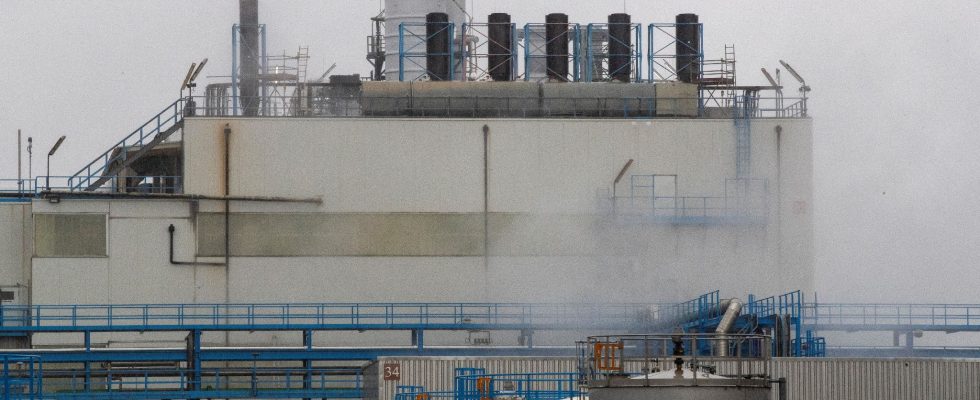A Report of the General Inspectorate for the Environment and Sustainable Development (IGEDD), published this Friday, April 14, recommends that the government act “without delay” against PFAS pollutants, these substances massively used in industry since the 1950s for their non-stick, waterproof or resistant to high heat properties. Nicknamed “eternal pollutants” because of their extreme persistence in the environment, PFAS are too little regulated by French regulations according to the report, and “their monitoring in the database is almost non-existent”. The text, commissioned in February 2022 by Barbara Pompili, then Minister for Ecological Transition, recommends in particular “to initiate the most urgent risk control actions without delay”.
In question: “the toxicity and the CMR character [cancérogène, mutagène et reprotoxique]” of these molecules “often suspected, even proven”. Also, the IGEDD is in favor of their global “restriction”, an initiative carried out by several States at European level. In March 2023, Germany, Denmark, Sweden , Norway and the Netherlands have thus drawn up a joint request to ban all substances belonging to PFAS, i.e. more than 10,000 chemical substances.The European Chemicals Agency (ECHA) collects until September 25, 2023 the opinions of interested parties before submitting its conclusions to the Commission, for implementation after 2026. This approach was supported by several States, including France.
Substances present everywhere
The IGEDD report also recommends the “substitution of PFAS whenever possible by less harmful substances”, to better inform the public about the risks and the presence of these pollutants in the various products and to initiate a research program to improve knowledge. Because PFAS are present everywhere around us: textiles, food packaging, stoves, fire-fighting foams, non-stick coatings, etc. PFAS have contaminated all media (water, air, soil) and the entire food chain. Also, 100% of the French population is impregnated by perfluorinated compounds, according to a study published in 2019 by Public Health France.
Currently, “France does not regulate any PFAS in the control of raw water and water intended for human consumption” and the “French regulation of industrial emissions still regulates PFAS discharges too little”, note the authors of the report, adding that There are similar gaps in controlling PFAS contamination in air and soil. In December 2022, the government published an “action plan” to better “assess the effects of PFAS and thus limit them more strictly”, while stressing that actions must be taken at European level. The environmental deputy, Nicolas Thierry, who considers that this plan is a “diversion”, tabled a bill on Thursday calling for a ban on PFAS from 2025 when there is an alternative, before a total ban in 2027.
